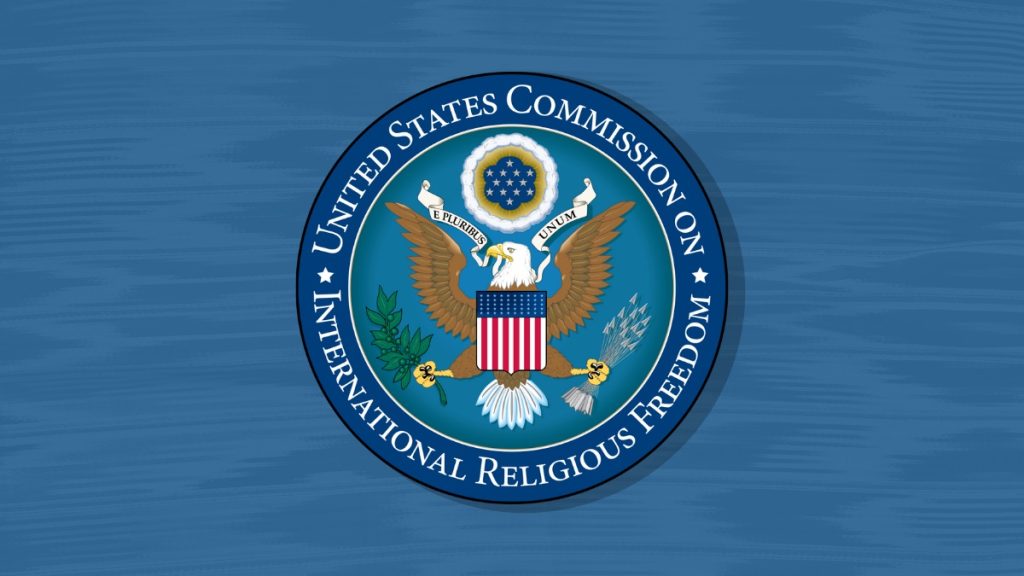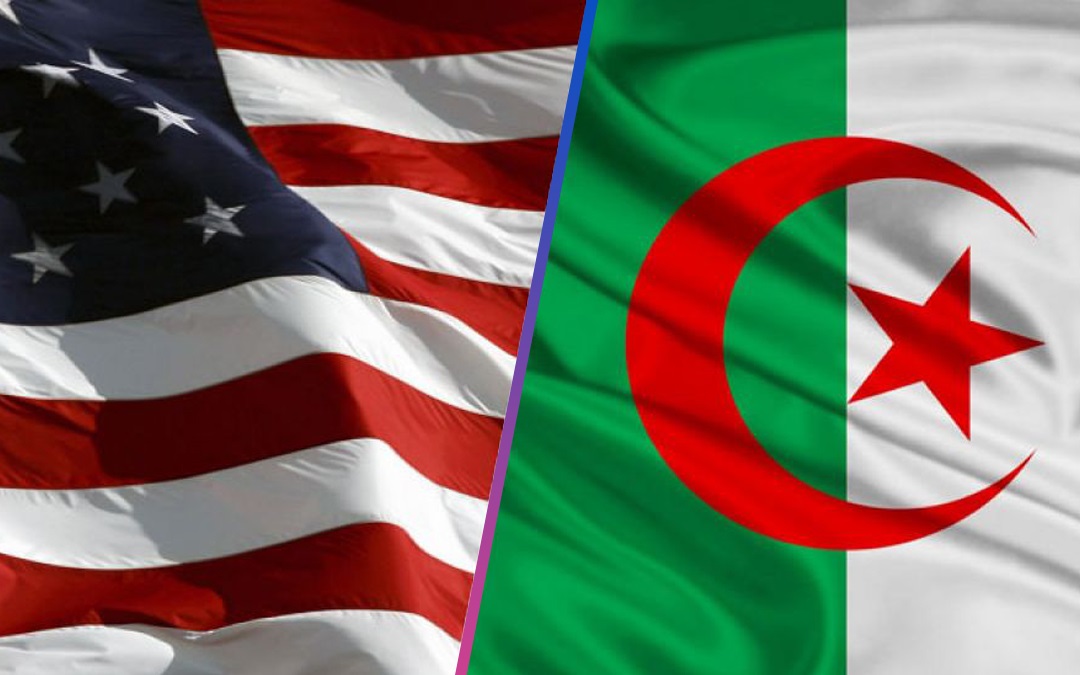Watan-The U.S. Commission on International Religious Freedom (USCIRF), in its 2024 annual report, recommended that the U.S. government take several measures to address what it described as “serious violations of religious freedom in Algeria,” and called for the country to remain on the Special Watch List. Algeria, for its part, consistently rejects these reports, saying they “do not reflect the reality” on the ground.
The new report, issued by the influential commission with ties to the U.S. Congress and State Department, recommended keeping Algeria on the Special Watch List under the International Religious Freedom Act (IRFA) due to its continued violations—or tolerance of violations—of religious freedoms.
The report urged the U.S. to coordinate with like-minded governments, including members of the “International Religious Freedom or Belief Alliance” and the United Nations, to consistently raise concerns about religious freedom with the Algerian government. It also called for linking U.S. foreign aid to Algeria with concrete progress on addressing these violations. This includes decriminalizing blasphemy and proselytization, approving the registration of the Protestant Church of Algeria (EPA) and the Ahmadiyya community as religious organizations, and reopening closed places of worship.
The report also emphasized the importance of U.S. lawmakers pressing the State Department and Algerian officials to address the impact of blasphemy laws and church closures on religious freedom, and advocated for greater prioritization of religious freedom issues in U.S.-Algerian bilateral relations.

Details of the Report
The report cited “multiple violations of religious freedom in Algeria,” and the government’s continued systematic persecution of Christians and minority Muslims, relying on Article 144 of the Penal Code that criminalizes blasphemy, and Ordinance 06-03, which criminalizes proselytization and targets anyone who “incites or forces or uses enticement to convert a Muslim from their religion.”
It noted that Algerian authorities have continued closing all churches affiliated with the EPA, except for one that operates at limited capacity in Algiers. These closures were carried out through court orders or directives from provincial governors, with the government still refusing to legally recognize these churches or allow them to re-register.
The report observed that although Ordinance 06-03 acknowledges Christianity, it imposes strict limitations on non-Muslim religious practices, including requiring government approval to establish non-Muslim places of worship. It also criminalizes “shaking the faith of a Muslim” through producing, storing, or distributing religious materials. Catholics also face restrictions on practicing their faith publicly, and foreign nationals face prosecution and deportation if they proselytize outside of churches or homes.
The report highlighted that Algerian courts issued several convictions against Protestant church leaders, including Pastor Youssef Drahmane, EPA’s deputy head, who was sentenced to two years in prison and fined for “establishing a place of worship without a permit” and “organizing a religious gathering in an unlicensed location.” The appellate court suspended the sentence but added another six months and an additional fine.
It also stated that the Algerian government continues to systematically persecute members of the Ahmadiyya community, whose population dropped from around 2,000 in 2018 to just 230 in 2023 due to severe state restrictions. Authorities have refused to register the Ahmadiyya community as a religious organization, accusing them of “insulting Islam and threatening national security.” As a result, Ahmadis are forced to practice their faith in secret, fearing harassment from the state and society.
The report noted that the Jewish population in Algeria has declined from 140,000 to fewer than 200 people. While they do not face significant issues with the authorities, anti-Semitism remains a concern in the country. It claimed that “the Algerian government tolerates anti-Semitic hate speech that conflates Jews with Zionism and Israel, limiting Jews’ ability to freely practice their religion.”
About USCIRF
The United States Commission on International Religious Freedom (USCIRF) is an independent, bipartisan federal agency established by the IRFA of 1998 to monitor global religious freedom and provide policy recommendations to the U.S. President, Secretary of State, and Congress regarding countries committing severe violations.
The commission is composed of volunteer members from the private sector appointed by the President and congressional leaders from both parties. The U.S. Ambassador-at-Large for International Religious Freedom also serves as a non-voting member. Members serve two-year terms and may be reappointed. They are selected based on expertise in human rights, foreign affairs, or international law.
Algeria’s Position on the Reports
Such reports typically stir controversy in Algeria. The Algerian government denies restricting religious freedom when practiced within legal boundaries. It acknowledges closing unlicensed churches operating inside homes for proselytization purposes in cities like Tizi Ouzou and Oran, considering these activities violations of the law, which bans exploiting minors and the vulnerable to convert them from their religion “in order to preserve public order.”
Minister of Religious Affairs and Endowments, Youcef Belmehdi, emphasized late last year that religious practice in Algeria is “protected and guaranteed” by the constitution and national laws.
During a conference on “Religious Freedom, Protection, and Guarantees” held in the presence of the U.S. ambassador, accredited diplomats, and church representatives in Algeria, Belmehdi stated:“Our country has embraced diverse religions and cultures.”
He added that Algeria considers religious worship in designated places a constitutional expression of basic rights and freedoms guaranteed to all residents of Algeria.
Belmehdi also highlighted that national laws protect places of worship for all religions from any form of attack, emphasizing that the Algerian state ensures support and cooperation with church officials during their religious duties and travels across provinces.
He noted Algeria’s care for non-Muslim cemeteries, ensuring their sanctity and rehabilitation. The law criminalizes the desecration of graves, whether Muslim or non-Muslim.
As a concrete step, the minister pointed out that Algeria has renovated Saint Augustine’s Church in Annaba (east), the Santa Cruz Church in Oran (west), and Our Lady of Africa Basilica in Algiers. He added that plans are underway to restore the Sacred Heart Church in the capital. The renovation, approved by President Abdelmadjid Tebboune, has completed its study phase and was communicated to Archbishop Jean-Paul Vesco.
Belmehdi concluded that his ministry is actively reviewing concerns submitted through the National Committee for Non-Muslim Religious Rites to ensure worship in churches and other places is conducted peacefully and legally.
In January 2024, the U.S. added Algeria to its Special Watch List for religious freedom violations, prompting widespread backlash within Algeria, with some accusing Washington of politically pressuring Algeria over its pro-Palestine stance.
Annual reports from the U.S. State Department on global religious freedom also note surveillance and pressure on Ahmadis, as well as on followers of Shia Islam and Sufi sects such as the Karkariya, which drew attention in recent years.
